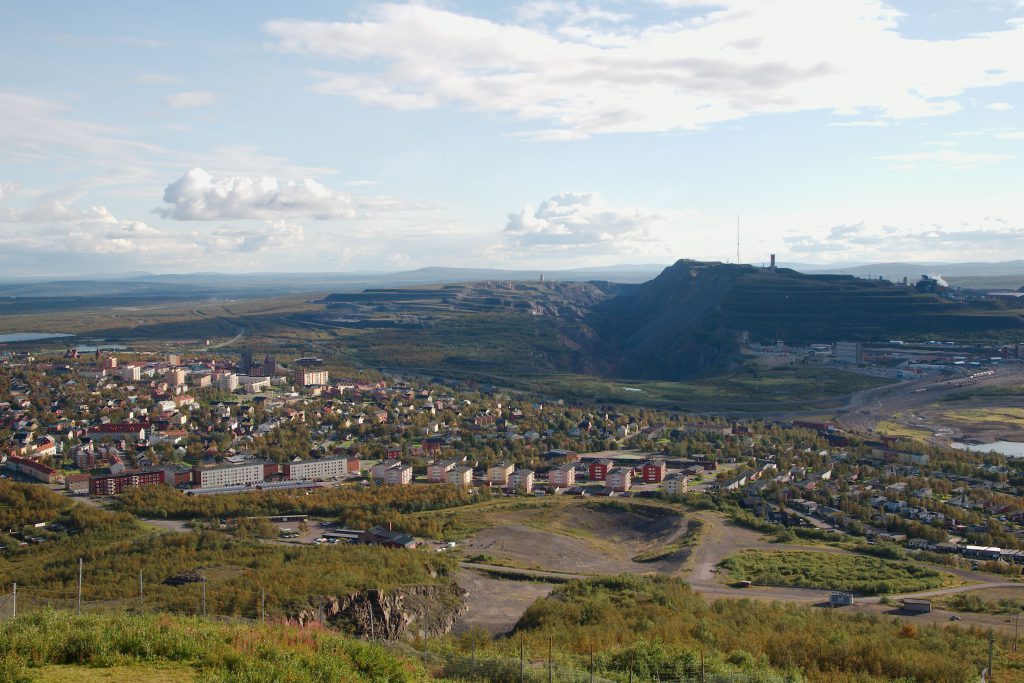Reuters | June 12, 2023 |

The town and mine of Kiruna, Sweden. Credit: Wikimedia Commons
Swedish mining company LKAB on Monday raised by a quarter its estimate of the size of deposits of rare earth oxides in the Kiruna area of northern Sweden, already Europe’s biggest discovery of minerals key to green technologies like electric motors.

Resources at the Per Geijer deposit, which is rich in elements used to make permanent magnets, are now estimated at 1.3 million tonnes, up from an earlier estimate of more than 1 million, LKAB said.
“In January Per Geijer was already the biggest known deposit in Europe in terms of those materials,” LKAB CEO Jan Mostrom said. “We have raised the volume by around 25%.”
LKAB said it would now submit an application for a processing concession which will give it exclusive rights to develop the deposit. LKAB will still need an environmental permit and other regulatory approvals before it can start commercial operations.
The European Commission wants to speed up the development of new mines like Per Geijer to end its dependence for exotic minerals like dysprosium, praseodymium and neodymium on China.
Electrification of industry and transport away from fossil fuels is seen as critical to fighting climate change.
“If we are going to get near our targets for 2030, 2035, 2045, we are going to have to have enormous amounts of these materials,” Mostrom said.
LKAB warned In January that it could take 10-15 years before mining started at Per Geijer due to the complicated permitting process in Sweden.
But Mostrom said the European Union’s proposed Critical Raw Materials Act (CRMA) could be a game-changer.
“If the Per Geijer deposit is deemed a strategic project, it will go considerably faster,” he said.
The CRMA sets a target for 10% of the EU’s annual consumption of critical minerals to be mined within the bloc by 2030. It also states that strategically important projects should get extraction permits within 24 months.
Sweden, with a long history of mining, has huge mineral resources, but has only given the go-ahead to a handful of new mines over the last 20 years.
It currently has 12 operating mines.
(By Simon Johnson; Editing by Kirsten Donovan)
No comments:
Post a Comment